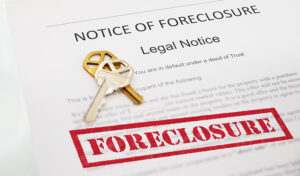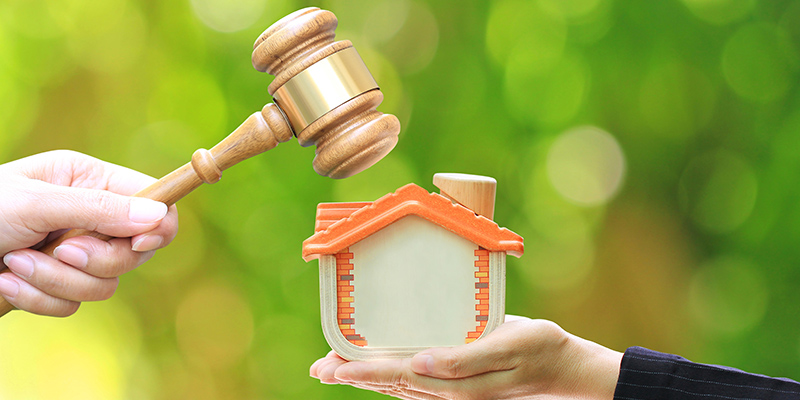It is important for homeowners associations to utilize collection actions when members default on their dues and assessments. This is where an HOA lien on the property comes in handy.
What Is an HOA Lien?
Homeowners associations operate using a membership format. When someone buys a house in an HOA community, that person automatically becomes a member of the association. That means they will now have to abide by the association’s rules, which include fulfilling member obligations. One of these obligations is to pay regular dues to the HOA.
The dollar amount of dues can vary from one association to another. It can even change on a yearly basis depending on certain budgetary factors. What does not change across all HOAs, though, is that owners are obligated to pay these dues. The association will then use these payments to fund various expenses related to maintaining the community.
So, when does an HOA lien enter the picture?
When there are payment obligations, there are bound to be nonpayers. Homeowners might default on their dues for any number of reasons. And while there are a handful of actions an HOA board can take to collect these unpaid dues, an HOA lien is perhaps one of the most effective.
Simply put, an HOA lien is the association’s legal claim on an owner’s property. Liens make it significantly harder for a homeowner to sell or refinance their house since they cloud the title. But, an HOA can also choose to initiate foreclosure proceedings after filing the lien.
How Does a Homeowners Association Lien Work?
Typically, a lien will automatically attach to a delinquent owner’s property. Sometimes, though, an HOA will need to record the lien with the county recorder’s office. This serves as a public notice of sorts, proving that the lien, in fact, exists.
In addition to the unpaid dues, the owner may also need to pay other fees related to the lien. Though, this can change depending on the association’s governing documents. Additional costs can include any late fees, attorneys’ fees, and interest.
After the owner satisfies their debt in full, the HOA will then need to record an HOA lien release with the county recorder’s office. The timeframe will depend on state or local laws, though associations generally have 21 days to file this release and send a copy of the release to the homeowner.
What Comes Next? Homeowners Association Foreclosures
Most of the time, the mere existence of the HOA lien is enough to scare delinquent owners into paying their debts to the association. Other times, though, the association must take it one step further. This often means foreclosing on the lien to satisfy the debt.
An HOA lien foreclosure works, in most ways, like your standard home loan foreclosure. If state laws and governing documents permit, associations can even foreclose on a home that has a mortgage on it. There are two methods of foreclosure — judicial foreclosure and non-judicial foreclosure.
 Judicial Foreclosure. This type of foreclosure normally takes more time and work as it requires the HOA to go through court. Using this method, your HOA will need to file a lawsuit and obtain a court judgment against the homeowner. This judgment will allow the HOA to sell the home to satisfy the owner’s debt.
Judicial Foreclosure. This type of foreclosure normally takes more time and work as it requires the HOA to go through court. Using this method, your HOA will need to file a lawsuit and obtain a court judgment against the homeowner. This judgment will allow the HOA to sell the home to satisfy the owner’s debt.- Non-judicial Foreclosure. This type of foreclosure only requires your HOA to follow state-mandated foreclosure procedures. Using this method, there is no need to go through court. Therefore, it is much easier.
Keep in mind that some states place specific limitations on when HOAs can foreclose. For instance, California Civil Code Section 1367.4 only allows associations to foreclose if unpaid dues reach $1,800 or are at least 12 months old. It is important to familiarize yourself with your own state laws to avoid liability. You can also consult an attorney for guidance.
What Happens After Foreclosure?
Some HOA boards feel apprehensive about foreclosing on an owner’s home because they believe that the first mortgage will then fall under the association’s responsibility. But, this is a common misconception. Even if the first mortgage remains on the property after the HOA assumes ownership of the property, the mortgage does not transfer to the association. The homeowner (or borrower) is still liable for the mortgage since it is their name on the promissory note.
Most of the time, the borrower will stop making mortgage payments, though they may have already stopped long before the foreclosure. When this happens, the HOA can either continue paying the mortgage (though it is not required to do so) or allow the first mortgage holder to foreclose. It is common for HOAs to choose the second option because it usually means you get to welcome a new paying member into the community.
What Is a Homeowners Association Super Lien?
If an HOA forecloses on a home, its lien holds priority over all other liens and encumbrances. This is usually the case for most associations according to state laws or their governing documents.
But, there is an exception to this rule. In most scenarios, the HOA lien on the house does not hold priority over the first mortgage or deed of trust recorded prior to when the dues turned delinquent. As such, the first mortgage lien will remain attached to the property even after the HOA forecloses on the home.
In some states, though, the homeowners association’s lien receives priority even over the first mortgage. This is what is referred to as an HOA super lien. With a super lien, the HOA’s lien holds priority over all other types of liens, subject to certain limitations. For instance, in Nevada, nine months’ worth of unpaid dues receive super lien status.
If an HOA lien holds super lien status, foreclosure sale proceeds will first be used to pay the owner’s debt to the association up to a certain amount or months’ worth of unpaid dues. The first mortgage holder will then receive the remaining proceeds from the sale. Any surplus funds after that will go to junior lienholders.
Making Collection Efforts Easy
An HOA lien is a useful collection tool that permitted homeowners associations can employ. Understanding the ins and outs of liens and super liens, though, can prove to be a challenge. Sometimes, the best way to minimize delinquencies is to make payments more convenient for members.
This is where Condo Manager comes in. Using HOA software, members can settle their dues online or via ACH draft. Your HOA board can also easily track delinquencies and generate analytics. Call us today at (800) 626-1267 or contact us online for a free demo.
RELATED ARTICLES:
- How Helpful Is It For The BOD To Process Electronic Payments For HOA Dues?
- HOA Account Delinquency Report: Does Your HOA Need One?
- Your Ultimate Guide to HOA Fees



